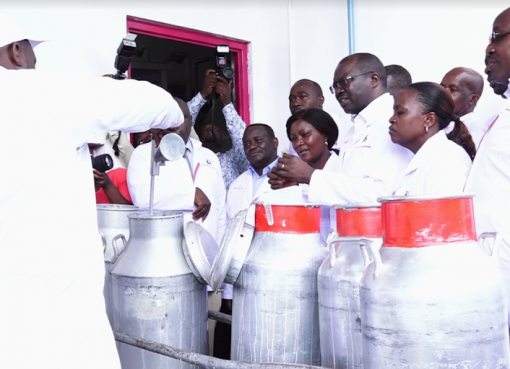The tea industry in the country is increasingly being threatened by high costs at the factory and farm levels.
Chairman of Chinga Tea Factory Company Limited William Wambugu has said such costs include prices of fertilizers, fuel and labour that ‘eat” into farmers financial returns.
Speaking during the company’s annual general meeting held at the factory grounds in Othaya constituency Friday, Wambugu disclosed that the dwindling tea fortunes, particularly during this year, emanated from unpredictable tea prices, due to political and economic crisis in the major markets that buy Kenyan tea.
He disclosed that the company was able to pay Sh706, 321,652 for green leaf delivered this year against Sh949, 158,000 in 2018.
Wambugu added that the company’s board of directors recommended that payment of 2.5 per cent be paid as a final dividend to all class B shareholders who were appearing in the company’s share register as at 30th June 2019.
However, he said despite challenges facing the tea sector, the company had endeavoured to advance into greater heights of profitability through adoption of the best practices by embracing new technologies and purchase of modern equipment to ensure efficient production and processing of leaves.
Wambugu told growers that the company had acquired land and planted its own trees to cut costs on fuel and installed an orthodox processing line to diversify its product and reduce over reliance on CTC (Cut, Tear, curl) that is prone to market dynamics related to demand and supply that affect tea prices. CTC tea and orthodox tea come from the same green leaves, the difference being the way they are processed.
Wambugu said growers were now using smart cards for green leaf weighing to minimize human errors during leaf buying process, adding that it had also installed the automation of the sorting section to minimize human handling of the final product to ensure safe tea lands in the market.
He further said the company had also managed to install CTC line that has increased output to 5,500 kilogrammes per hour, hence reducing processing time and increased staff productivity.
By Mwangi Gaitha




